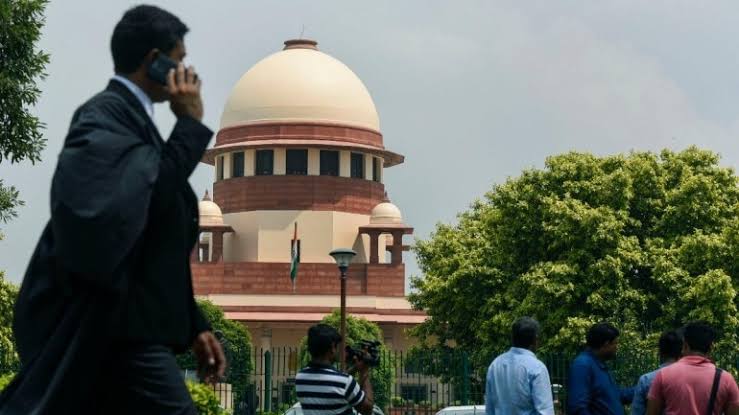On Monday, the Supreme Court is all set to pronounce its verdict pertaining to the controversial abrogation of Article 370 from Jammu and Kashmir on August 5, 2019. The top court will pronounce whether the issue challenging the abrogation of Article 370 should be referred to a larger bench or not. On September 30, the Supreme Court had set-up a five-judge Constitution Bench.
A bench headed by Justice NV Ramana and comprising of Justices Sanjay Kishan Kaul, Subhash Reddy, B.R. Gavai and Justice Surya Kant kicked off the hearings in the ten petitions that have challenged the presidential order.
On January 10, the Supreme Court ordered the Jammu and Kashmir administration to review all restrictive orders within a week. The top court, while pronouncing the verdict on a batch of pleas, including that of Congress leader Ghulam Nabi Azad, challenging the restrictions imposed in the erstwhile state of Jammu and Kashmir, after the abrogation of Article 370, has said Section 144 cannot be used as a tool to suppress dissent. It also said that internet suspension is subject to judicial review.
On November 21, the Centre had justified restrictions imposed in Jammu and Kashmir after the abrogation of provisions of Article 370. The Centre had said that due to the preventive steps taken, neither a single life was lost nor a single bullet fired. The Centre had referred to terrorist violence in the Kashmir Valley and said that for the past so many years terrorists were being pushed through from across the border, local militants and separatist organisation had held the civilians captive in the region and it would have been "foolish" if the government would not have taken preventive steps to secure the lives of citizens.
A bench headed by Justice NV Ramana and comprising of Justices Sanjay Kishan Kaul, Subhash Reddy, B.R. Gavai and Justice Surya Kant kicked off the hearings in the ten petitions that have challenged the presidential order.
On January 10, the Supreme Court ordered the Jammu and Kashmir administration to review all restrictive orders within a week. The top court, while pronouncing the verdict on a batch of pleas, including that of Congress leader Ghulam Nabi Azad, challenging the restrictions imposed in the erstwhile state of Jammu and Kashmir, after the abrogation of Article 370, has said Section 144 cannot be used as a tool to suppress dissent. It also said that internet suspension is subject to judicial review.
On November 21, the Centre had justified restrictions imposed in Jammu and Kashmir after the abrogation of provisions of Article 370. The Centre had said that due to the preventive steps taken, neither a single life was lost nor a single bullet fired. The Centre had referred to terrorist violence in the Kashmir Valley and said that for the past so many years terrorists were being pushed through from across the border, local militants and separatist organisation had held the civilians captive in the region and it would have been "foolish" if the government would not have taken preventive steps to secure the lives of citizens.
Leave a comment
Your email address will not be published. Required fields are marked *


